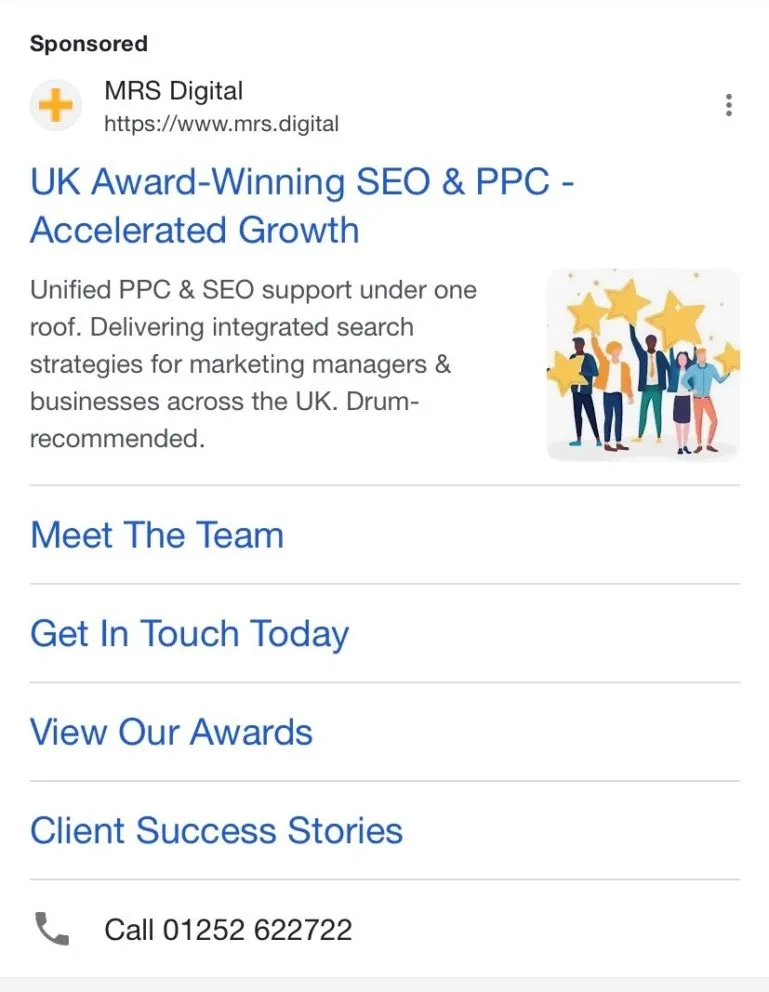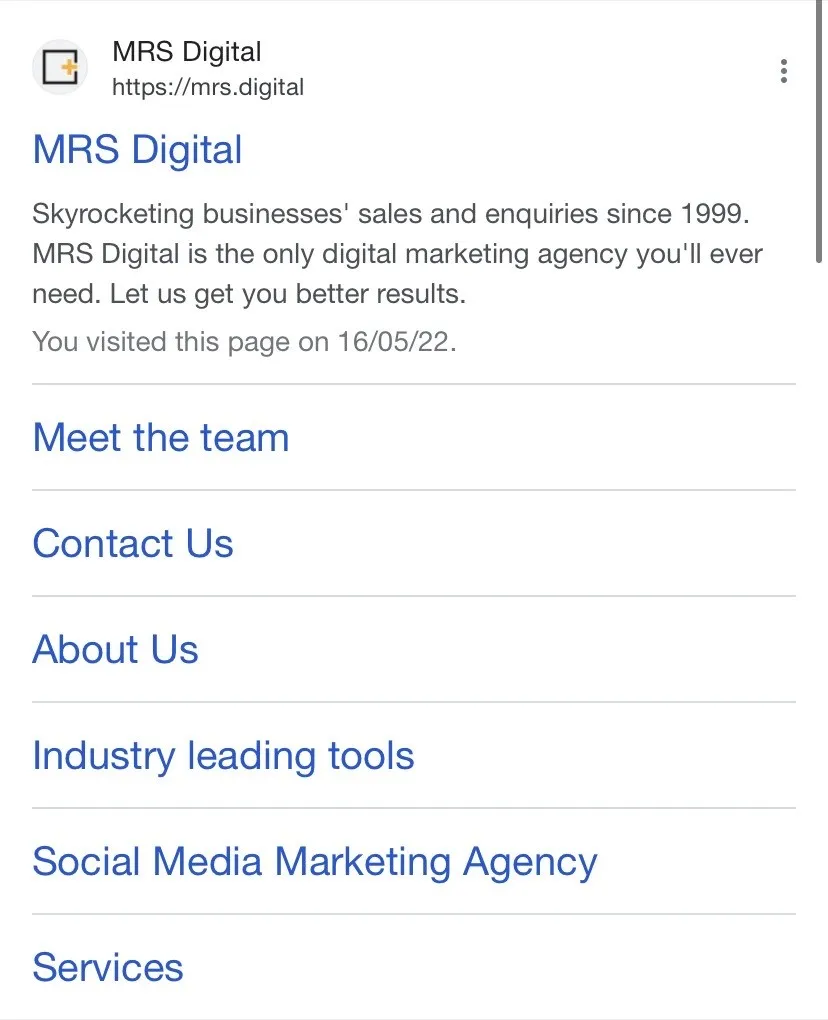In the month of spooky, scary skeletons and cute babies dressed up as pumpkins, there have been several tricks and treats from Google this month. September brought a considerable amount of change, and October was no different.
We’ve had a major revamp in mobile search layout, another spam algorithm update, and pushback on the sunset of Universal Analytics 360.
So, without any further ado, let’s get this round-up going!
New Site Name and Favicon Design Rolled Out in Mobile Search


On October 17th, Google rolled out a new mobile SERP (Search Engine Results Page) layout. With the new layout, website names now show at the top of the search result snippet, just above the URL, with favicons sat to the left.
Mobile paid search ads now sport a small, black and bolded ‘Sponsored’ label in the top left of the ad. They also now display a favicon, instead of the small black ‘Ad’ label that had previously.
Our opinion is that this has made paid search ads less distinguishable from organic snippets on mobile.
Now this rollout has occurred, you’ll want to make sure your favicon is up to date, your site name is displaying correctly, and that your PPC ads also have a favicon assigned.
Read our full blog on the mobile SERP updates and how you can ensure your snippets are displaying optimally.
New Favicon SERP Layout Design Has Issues
No sooner than the update announcement from Google on the mobile SERPs happening did people raise concerns that they weren’t working properly, which John Mueller, search advocate at Google, confirmed.
Google Store was even impacted, with their favicon still not showing in search as of the time of writing.
However, as of October 27th, this bug was reportedly resolved, and users should now begin to see favicons in search provided they have uploaded them correctly.
Spam Algorithm Rolls Out and Completes in 48 Hours
On October 19th, just two days after the mobile SERP update, Google announced a spam algorithm update. These happen frequently and are just updates to enhance Google’s spam prevention in the search results. These spam updates target those who utilise any of the following (from Google’s spam policies):
- Cloaking
- Doorways
- Hacked content
- Hidden text and links
- Keyword stuffing
- Link spam
- Machine-generated traffic
- Malware and malicious behaviours
- Misleading functionality
- Scraped content
- Sneaky redirects
- Spammy automatically-generated content
- Thin affiliate pages
- User-generated spam
Other behaviours that can lead to demotion or removal (e.g. high volume of online harassment removals)
You shouldn’t be impacted by this unless your content is seen by Google as spammy. If you find your website has been impacted after this, you should review your site against Google’s spam policies to see if you can identify what Google doesn’t favour on your website.
Universal Analytics 360 Now Sunsetting a Year Later
Universal Analytics 360, the paid version of Google Analytics that is commonly used by large businesses, is now being sunset a year later in 2024, rather than July 2023. Standard Universal Analytics is still being depreciated on 1st July 2023 by Google, and there is no change for free accounts.
For 360 users, it’s an extra year to transition over the data, and begin setting up GA4 to match 360. As UA 360 has similar features to GA4, more than UA does, the transition is more detailed and has many more data points to migrate. If you are a UA 360 user, you’ll still need to move to GA4 as soon as possible to ensure you have as much data as possible to compare. Even if you still use UA 360 in conjunction, it’s always worth having GA4 ready to go.

Google Ads Podcast Placement Now Available
Podcasts are a growing area of media consumption, and the Google Ads display network now lets you add video or audio ads on podcasts specifically. In the US, YouTube is now the second-most frequently used service for consuming podcasts.
Advertisers may have previously thought about video ads, but audio-only ads are another option and one that is profitable. There are lower overheads, and it’s a media form that people are very used to with radio advertising being so common over the years.
Audio ads for Google were only announced in mid-October, and a week later, the specific podcast tag was announced. If you want to try reaching audiences in a new way, why not try audio ads?
YouTube Rolls Out New ‘Handles’
YouTube, in one of the biggest changes to creator names on the website since the site launched, has introduced handles. Much like we’re used to on every other social media platform, you’ll know be able to tag creators in video comments, descriptions and claim your own handle.
For most users, the current last part of your URL, so youtube.com/c/yourchannel, will be what’s taken as your channel handle. It’s worth keeping an eye on your emails, as you’ll be invited to change your own handle to whatever you want, especially if you’re a business account.

Google Retires the Use of the Term ‘Webmaster’
In a move to be more inclusive to all creators on the internet, Google has retired the use of the outdated term ‘webmaster’. Instead, the webmaster guidelines have become Google Search Essentials and Google’s term for people who work on websites is now a Search Engine Optimizer, depending on the context.
Struggling To Keep Up with The Latest Search Trends?
We’ll take your SEO and PPC off your hands, creating an integrated search strategy that delivers tangible results.
Get in touch with us today.






